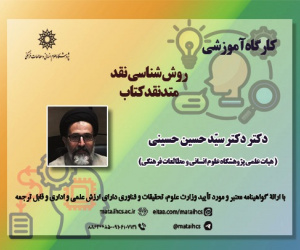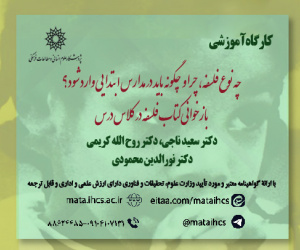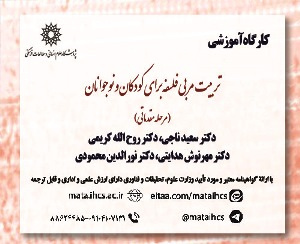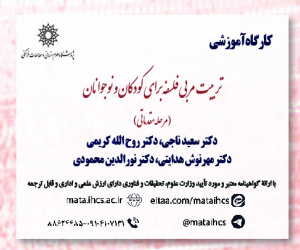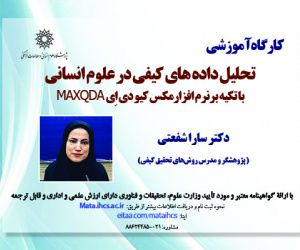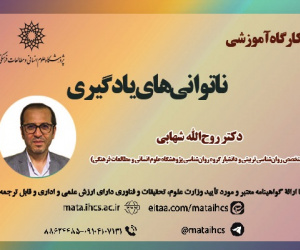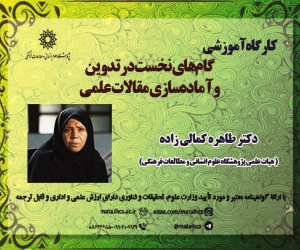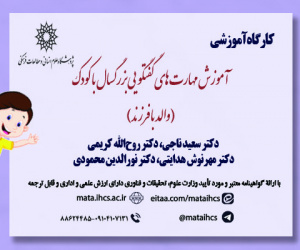دانشگاه فرهنگ؛ چگونه دانشگاه و جامعه به هم پیوند می خورند؟ (مقاله علمی وزارت علوم)
درجه علمی: نشریه علمی (وزارت علوم)
آرشیو
چکیده
این مقاله تحلیلی از موقعیت کنونی نهاد دانشگاه در ایران از نظر چگونگی پیوند آن با جامعه است. در دهه های اخیر فرایندهای بروکراتیک شدن و تجاری شدن فشارهای گوناگون ساختاری و سیاسی به نهاد دانشگاه آورده است تا این نهاد را در خدمت هدف های تجاری و سیاسی قرار دهد. در این مقاله می کوشم تا جنبه ها و جلوه های گوناگون این فشارها را نشان دهم و پیامدهای مخرب آن برای عملکردهای آموزشی، پژوهشی و فرهنگی را برملا کنم. این چالش ها و فشارها صرفاً محدود به نهاد دانشگاه در ایران نیست و دیگر جوامع هم با آنها درگیرند. با استناد به پژوهش های موجود این جنبه جهانی را توضیح می دهم؛ اما تأکیدم بر نهاد دانشگاه در ایران است. برای مواجهه با این چالش ها استدلال می کنم که برای تقویت پیوند نهاد دانشگاه با جامعه نیازی نیست بر کارکردهای تجاری و سیاسی دانشگاه تکیه کنیم، بلکه اگر این نهاد به همان کارکردهای تاریخی و سنتی اش یعنی پرورش افراد تحصیل کرده و کارآمد اجتماعی بپردازد و در خدمت ارزش های فرهنگی مدرن باشد که این نهاد از درون آنها برآمده است می تواند پیوندی ارگانیک با جامعه برقرار نماید. دو الگوی دانشگاه حمایتی و دانشگاه هویتی را از هم متمایز می سازم و استدلال می کنم که دانشگاه حمایتی نمی تواند پیوند محکمی و ساختاری با جامعه برقرار سازد و ما نیازمند دانشگاه هویتی هستیم که به هویت مدرن خود وفادار باشد. برای این منظور مروری تاریخی به تحولات نهاد دانشگاه در ایران می کنم و نشان می دهم با رویکرد خدماتی و حمایتی کردن دانشگاه، پیوند این نهاد با جامعه تقویت نشده است و نمی تواند تقویت شود. تشدید بر خدماتی کردن نهاد دانشگاه موجب تضعیف بیشتر آزادی و استقلال نهاد دانشگاه می شود و عملاً کیفیت آموزش و پژوهش دانشگاهی لطمه دیده و فاصله این نهاد هم از جامعه کم نمی شود.University and culture; How do university and society connect?
This article provides an analysis of the current position of the university institution in Iran, focusing on its connection with society. Over recent decades, the processes of bureaucratization and commercialization have imposed various structural and political pressures on the university, pushing it to serve commercial and political goals. In this article, I aim to highlight the diverse aspects and manifestations of these pressures and reveal their detrimental consequences for the educational, research, and cultural functions of universities. These challenges and pressures are not exclusive to the university institution in Iran; other societies face similar issues. Drawing on existing research, I explain this global aspect, but my emphasis is on the university institution in Iran. I argue that to address these challenges, it is not necessary to rely on the commercial and political functions of universities to strengthen their ties with society. Instead, if universities focus on their historical and traditional roles—cultivating educated and socially efficient individuals and serving the modern cultural values from which they originated—they can establish an organic connection with society. I distinguish between two models of universities: the "supportive university" and the "identity-oriented university." I argue that a supportive university cannot forge a strong and structural bond with society. What is needed is an identity-oriented university that remains true to its modern identity. To this end, I provide a historical review of the evolution of the university institution in Iran and demonstrate that the approach of rendering universities as mere service providers has not strengthened their connection with society—and cannot do so. Emphasizing the service-oriented approach to universities further undermines their freedom and independence, adversely affects the quality of education and research, and fails to bridge the gap between universities and society.

